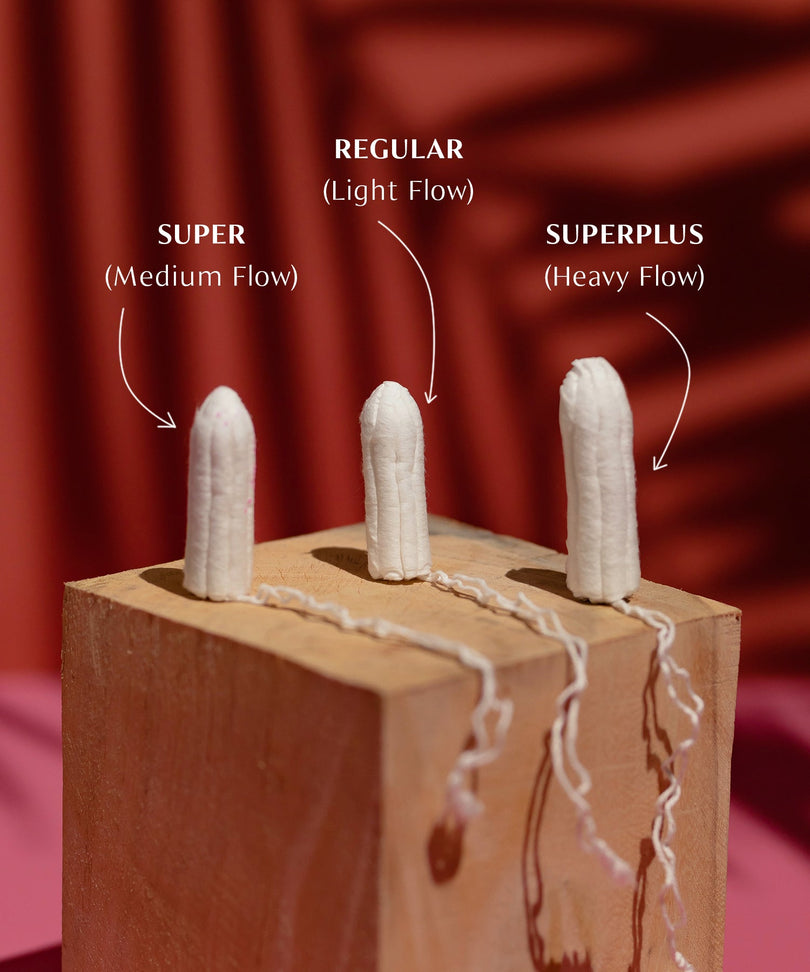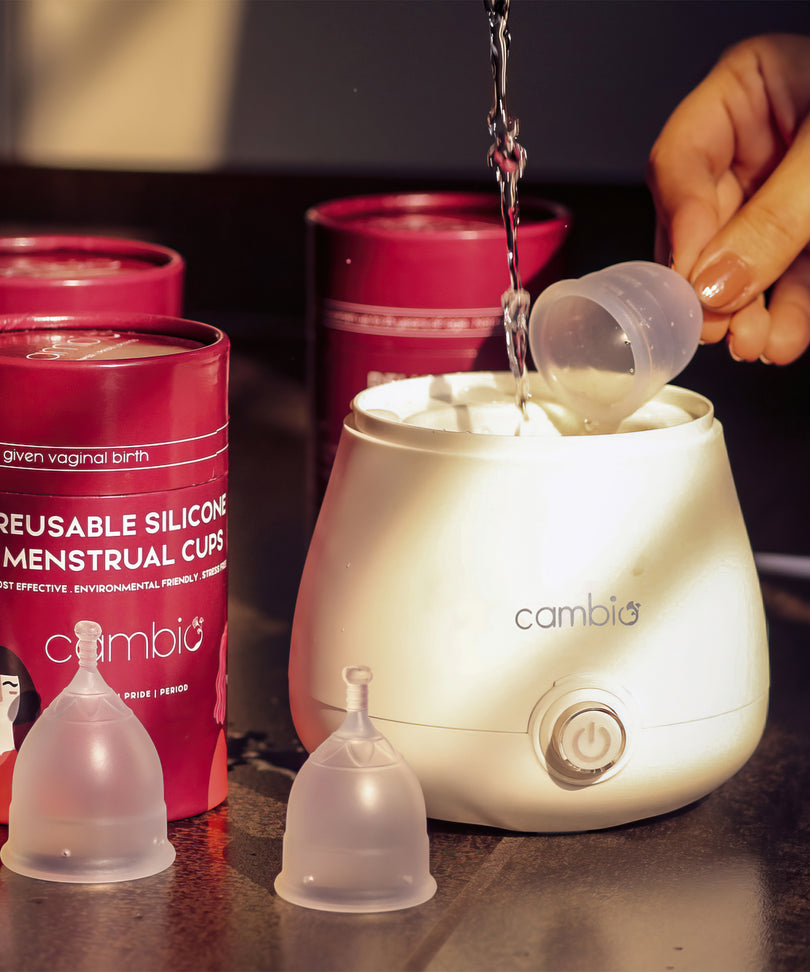Periods can be a natural and necessary part of a woman's reproductive cycle, but they can also be a source of discomfort and inconvenience for some women. That's why some may want to delay their period for various reasons, such as managing medical conditions, participating in physically demanding activities, attending social events, or undergoing medical interventions. In this article, we'll explore the safety of period delays, the pros and cons and different methods of delaying periods so that you can make informed and conscious decisions about your body!
Is it Safe to Delay Periods?
Delaying periods can be a practical choice for individuals looking to manage their menstrual cycle for various reasons. Whether it's to avoid inconvenience during special events, travel, or for medical reasons, there are methods available for period delay. However, it's crucial to assess the safety, potential risks, and benefits associated with these methods. Here's a closer look at the safety considerations when it comes to delaying periods:
- Consulting a Healthcare Professional:
- Before opting for any method to delay your period, it's highly advisable to consult with a healthcare professional. They can conduct a thorough health assessment, taking into account your medical history, any underlying conditions, and current medications. This personalized consultation will help determine the most suitable approach for your specific situation.
- Hormonal Methods:
- Many methods for delaying periods involve hormonal interventions. These methods include hormonal contraceptive pills, progestogen medications, or hormonal intrauterine devices (IUDs). These hormones can alter the natural menstrual cycle, postponing menstruation.
- Potential Risks and Side Effects:
- While hormonal methods can be effective in delaying periods, they may come with potential risks and side effects. Common side effects include mood swings, breast tenderness, nausea, and changes in libido. Additionally, hormonal interventions may not be suitable for everyone, especially those with certain medical conditions.
- Health Assessment:
- A comprehensive health assessment by a healthcare professional is crucial to determine whether delaying your period is a safe option for you. They can identify any contraindications or potential interactions with existing medications.
- Non-Hormonal Methods:
- Some non-hormonal methods, such as using non-steroidal anti-inflammatory drugs (NSAIDs), have been explored for period delay. NSAIDs may help reduce menstrual flow and discomfort but may not be as effective in completely delaying periods.
- Individual Considerations:
- The safety of delaying periods can vary from person to person. Factors such as age, overall health, and individual responses to hormonal interventions need to be considered. What might be safe for one person may not be suitable for another.
- Assessing Benefits and Risks:
- It's essential to weigh the benefits of delaying your period against potential risks and side effects. If the primary goal is to manage discomfort or inconvenience, it's crucial to assess whether the benefits justify the use of hormonal interventions.
Also read - Can sex make your period come early?
How to Delay Your Periods Naturally?
While there's no foolproof natural method, these holistic options might help push back your start date (but always consult your doctor first for any questions!):
- Herbs to delay Period:
- Cinnamon: Warm up with this spicy brew! Cinnamon tea is believed to reduce uterine blood flow, potentially delaying your arrival.
- Parsley: This leafy friend is rich in vitamin C, which some think can influence hormonal fluctuations. Blend it into smoothies or enjoy it fresh.
- Lifestyle Tips to Delay Period:
- Unwind and decompress: Stress can wreak havoc on your cycle. Practice meditation, yoga, or deep breathing to help lower cortisol levels and potentially influence your period starting date.
- Hit the Snooze Button: Sleep deprivation can also disrupt your hormonal balance. Prioritizing rest might help regulate your cycle and potentially delay your next visit.
Remember:
- These methods lack scientific backing and may not work for everyone.
- Consult your doctor before trying any new approach, especially if you have underlying health conditions.
Also read - Things You Must Avoid During Periods
How to Delay Your Periods Using Hormone Treatment?
There are several hormonal methods available to delay or stop periods altogether. These methods vary in effectiveness and potential side effects, so it's essential to consult with a healthcare professional before making any decisions.
Here’s a list of Hormonal Treatments you can avail to delay your Periods:
Hormonal IUD: A hormonal intrauterine device (IUD) is one of the most effective methods of period delay. It releases small amounts of the hormone progestin to help regulate menstrual cycles and may delay or stop your period altogether.
Extended cycle pills: Extended cycle birth control pills are designed to be taken for a longer period and contain both estrogen and progestin. They can help delay or stop periods altogether by regulating hormone levels in the body.
Hormonal injections: Hormonal injections are used to delay periods in people experiencing severe menstrual pain. The injections release hormones that help balance hormone levels and may reduce bleeding and cramping.
Hormonal birth control pills: Hormonal birth control pills can help regulate menstrual cycles and delay or stop periods altogether. These pills are typically taken daily and can be used to treat a variety of menstrual issues, including painful periods, heavy bleeding, and PMS symptoms.
It's important to consult with a healthcare professional before using any hormonal method to delay your period.
Also read - Best Comfort Food for Your Period
Q: What is the maximum delay in periods if not pregnant?
A: While it's not exact, the maximum delay in periods for non-pregnant individuals can vary from a few days to several weeks, depending on various factors like hormone levels, stress levels, and overall health.
Q: Can being sick delay your period?
A: Yes, being sick can potentially delay one's period. Various factors can impact menstrual cycles, including illnesses and stress, which can lead to delayed or even missed periods. If you are experiencing any unusual symptoms, it's essential to consult with a healthcare professional to determine the underlying cause.









